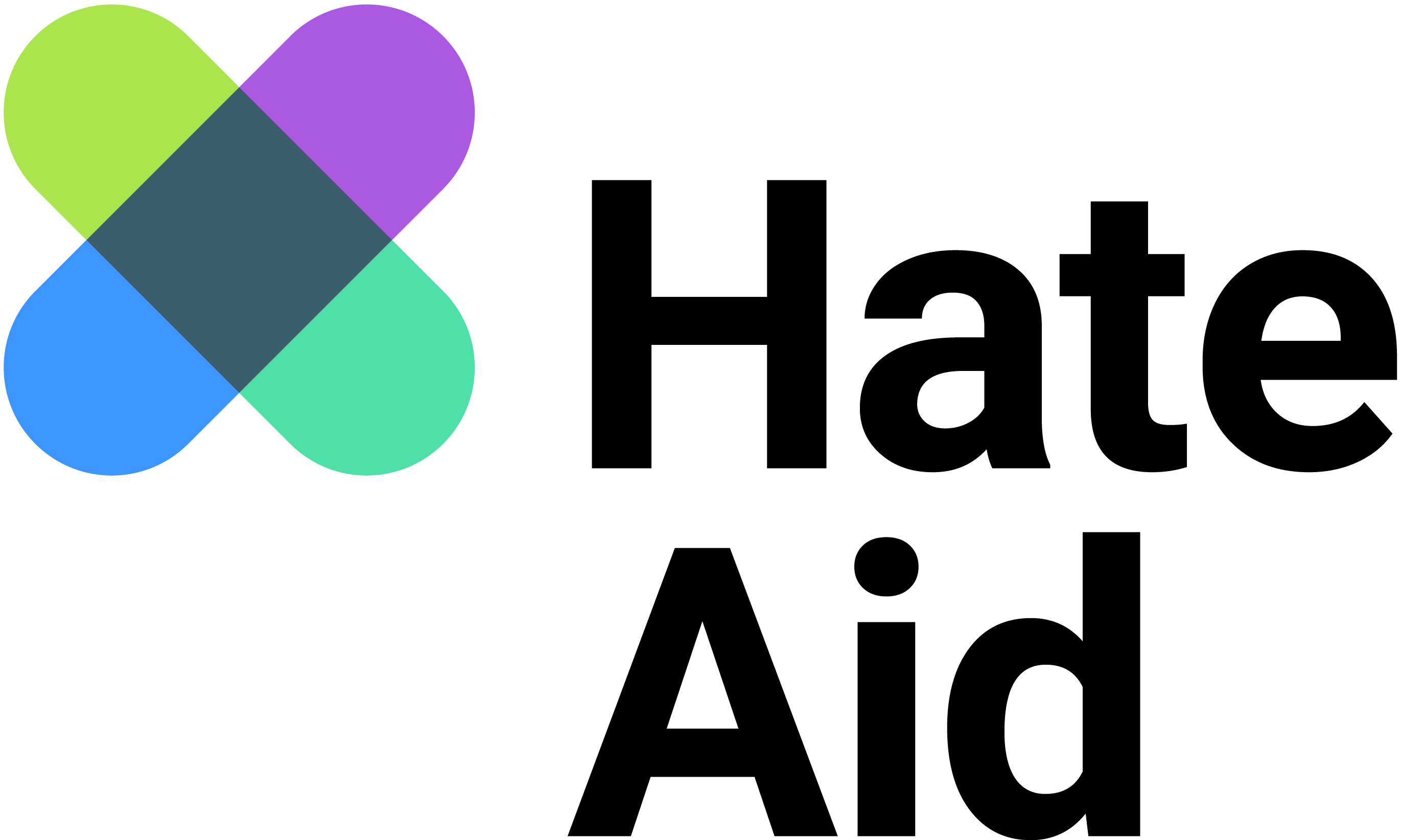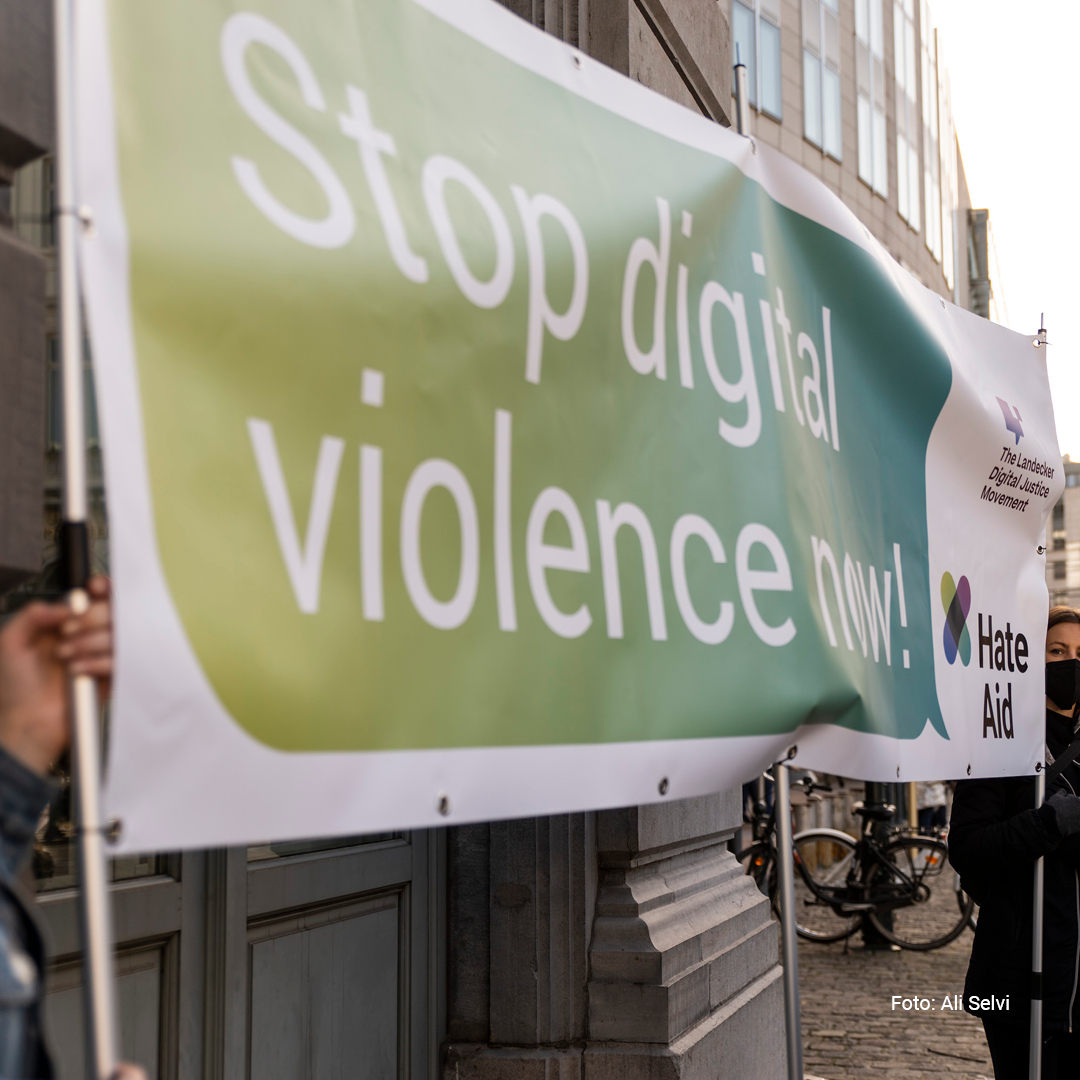Mixed feelings: Digital Services Act replaces NetzDG
As of 17 February, the European Digital Services Act (DSA) will apply to all online platforms. The DSA will ultimately replace the German Network Enforcement Act (NetzDG) that was the first regulation to tackle hate crimes on social media networks in Europe. While this will benefit users in member states where there was previously no regulation, it also means setbacks for German users. HateAid calls on regulatory authorities to enforce the compliance of platforms strictly to make the new law succeed.
Successes for users’ rights on social media
No matter if social media giant or small platform: the DSA not only applies to a few selected large social networks but will for the first time also regulate small platforms as well as gaming and porn platforms and professional networks like LinkedIn. These platforms are now required to provide more rights to users affected by online violence, including user-friendly reporting channels for illegal content and complaint mechanisms.
Josephine Ballon, CEO of HateAid, comments:
“The DSA provides users with specified tools to defend themselves against digital violence. But our experience with the platforms shows: there is reason to fear that Musk, Zuckerberg, and others will seek and exploit loopholes in the law. In the past that has made it harder for users to enforce their rights. In particular, the Bundesnetzagentur, the Federal Network Agency, as the supervisory authority and first point of contact for users must now ensure that the platforms follow the rules and take the concerns of victims of digital violence seriously.”
Drawbacks for online safety in Germany
Unfortunately, Germany faces a disappointing start as there will be a significant delay in the enforcement of the DSA. This setback is attributed to the fact that the regulatory authority, Bundesnetzagentur, has not yet been officially designated. This is not expected to happen until the conclusion of the parliamentary procedure at the beginning of May. In the meantime, this has led to considerable uncertainty among users and civil society. Without competent authority users have no option to officially report violations of the DSA. Also, NGOs cannot become Trusted Flaggers that benefit from privileged reporting channels to online platforms. Germany and other member states facing similar circumstances are off to a discouraging beginning.
Besides that, content moderation will in many cases be restricted to single member states since the DSA does not standardise “illegal content” in the EU. Users also lose the right to contact an authorised agent in Germany to enforce their rights against social media platforms. Therefore, users have to address legal claims towards social media platforms in their country of origin challenging them with international delivery of documents. Furthermore, the platforms are no longer obliged to explicitly remove illegal content within a deadline of 24 hours.
HateAid will systematically test the new tools the DSA brings and advocate for their enforcement. Compared with the NetzDG, the DSA focuses less on the take down of comments and more on the containment of systemic risks posed by online platforms. These include gender-based online violence, the dissemination of illegal content and electoral processes. So far, however, these rules have not led to more transparency. Therefore, HateAid demands information about the risk assessment reports that very large online platforms have already submitted to the European Commission months ago. In a year featuring over 70 elections worldwide, there is an urgent need for information regarding how platforms assess and mitigate risks. Experts consistently warn about the growing influence of far-right and anti-feminist movements online, with women in politics being increasingly intimidated and displaced from public discussions.
During the legislative process in the EU, HateAid campaigned for stronger regulation of social media platforms to protect users against digital violence. Once the DSA was approved, HateAid advocated for large porn platforms such as Pornhub and XVideos to adhere to the same rules as all other major social media platforms by being designated as very large online platforms. In a subsequent designation of online platforms, the EU Commission has complied with this. HateAid is also eagerly awaiting whether platforms such as Telegram will adhere to the new rules and designate a legal representative in the European Union.
All the new regulations in detail, as well as tips and guidance, can be found in the user guide published by HateAid.
HateAid gGmbH
The nonprofit organisation HateAid was founded in 2018 and has its headquarters in Berlin. It advocates for human rights in the digital space and stands up against digital violence and its consequences at both social and political levels. HateAid provides support to people affected by online violence in the form of counselling and litigation financing.
For more information about HateAid gGmbH please visit our website: hateaid.org/en
Press contact: presse@hateaid.org, Tel. +49 (0) 30 25208837



